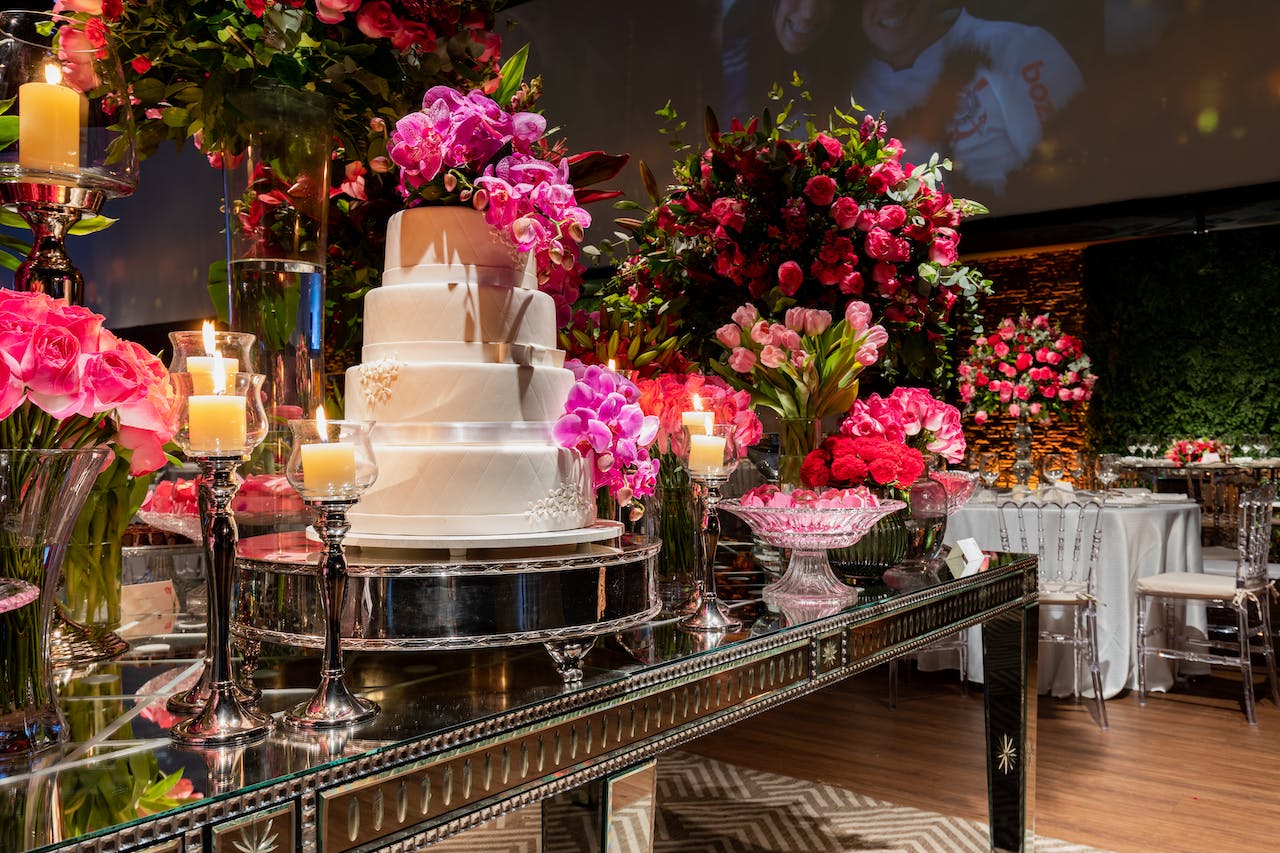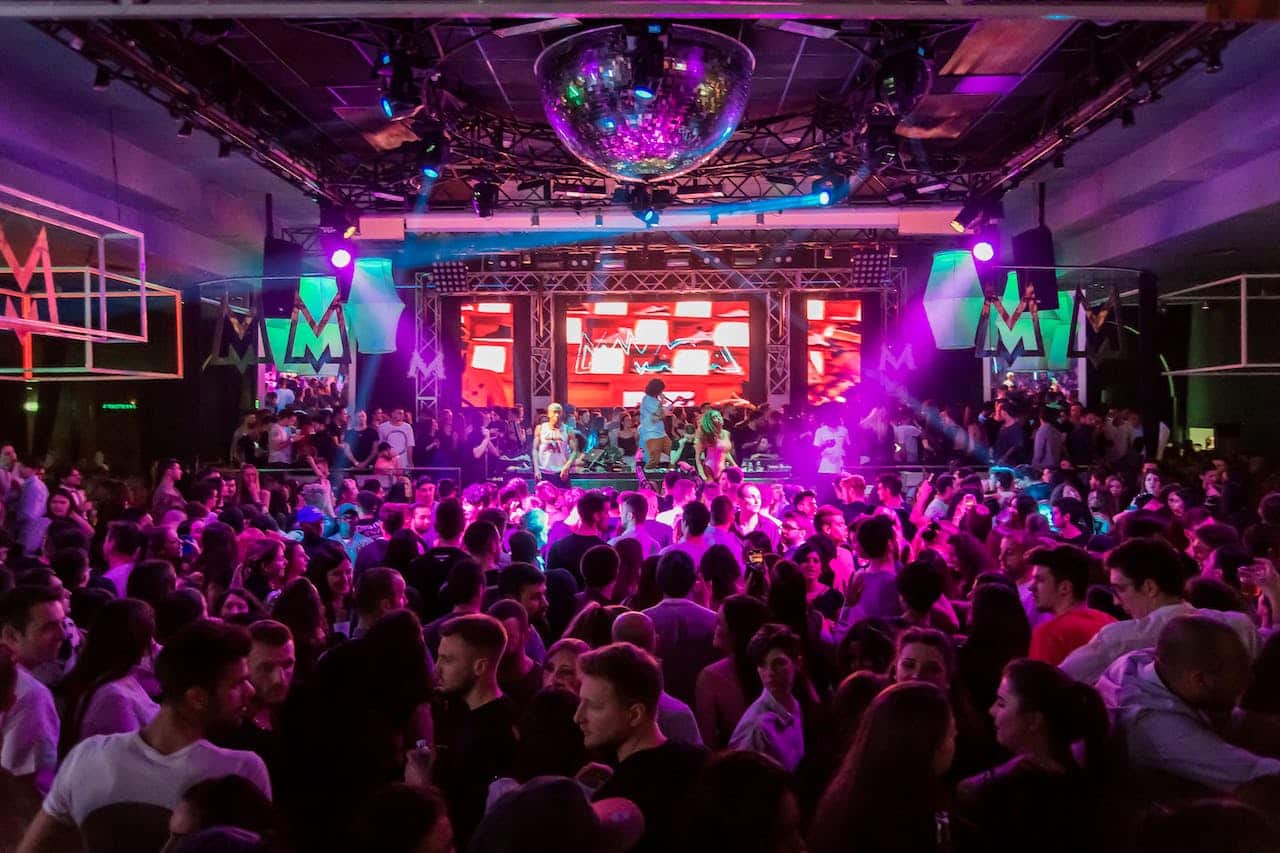Starting an event production can feel like you’re the main character in your show, with all eyes and expectations on you. The audience is your guests, each element of the event a part of the show you’re directing. It’s thrilling, but let’s face it, it can also be overwhelming. Here’s a guide to navigating these waters, ensuring your event is legendary.
1. The Balancing Act of Budgets in Event Production
Planning an event is similar to creating a work of art – every bit of spending needs to play its part in bringing your grand vision to life. This balance of imagination and fiscal prudence forms the cornerstone of successful event production.
The Precision of Financial Planning
Working within a budget for an event requires careful and strategic planning. Begin by identifying the must-haves and nice-to-haves. Must-haves are non-negotiable elements critical to the event’s core objective, like a secure venue or essential catering.
On the other hand, nice-to-haves can elevate the event but are not crucial. This distinction helps in prioritizing expenditures and allocating resources more effectively.
Moreover, transparency in budgeting is essential. Maintaining a clear record of all expected and unexpected expenses provides a real-time picture of the financial health of your event. This vigilance helps make informed decisions, like adjusting plans or negotiating better deals with vendors, ensuring the budget is used judiciously.
Crafting Value, Not Just Cutting Costs
Frugality in event production doesn’t necessarily mean cutting corners. It’s about maximizing value. For instance, investing in high-quality audio-visual equipment might seem like a splurge. But it can significantly enhance the attendee experience, making it a worthy investment.
Furthermore, building strong relationships with suppliers and vendors can pay dividends. Effective negotiation is more than just discussing prices; it involves creating situations where everyone comes out ahead, often leading to mutually beneficial agreements.
2. Vendor Tango: Harmony in Collaboration
Successful event production relies heavily on the smooth collaboration and orchestration of various vendors. These partnerships are vital in bringing the vision of the event to life.
Choosing the Right Partners
The process of selecting vendors is much like casting actors for a play. Each vendor brings a unique skill set and style to the event. The key is to choose those who align with your event’s theme and values. Research, references, and past work samples are invaluable in this selection process.
Once the team is in place, the focus shifts to building a cohesive unit. This requires clear communication of your vision and expectations. Regular meetings, detailed briefs, and open communication channels help keep everyone on the same page.
The Dance of Coordination
The true test of vendor management lies in coordinating their efforts. An event’s success ensures that each element, like the florist’s creations, the lighting setup, or the caterer’s timetable, works harmoniously with the others. This synchronization is crucial for a seamless event flow.
Handling vendor relationships also means being prepared for last-minute hitches. Adaptability and quick problem-solving are essential. Sometimes, a vendor might face a logistical issue or a last-minute cancellation. How you respond to these challenges, often with the help of other vendors or by having backup plans, can make all the difference in the smooth execution of your event.
3. The Master Plan: Event Production Logistics Unraveled
Event logistics serve as the framework upon which the success of an event is built. This intricate process involves well-coordinated steps and decisions, each critical to ensuring a smooth, enjoyable experience.
The Blueprint of Success: Strategic Planning
Developing a strategic plan is the first step in unraveling the complex world of event logistics. A comprehensive plan for an event should cover every detail, from setting up the first decoration to the final clean-up. Key elements include venue selection, layout design, attendee flow, and schedule timing. Each component must harmonize to create a cohesive and efficient event environment.
Venue selection, in particular, is a cornerstone decision. The location must align with the event’s theme and size and accommodate specific logistical needs like accessibility, technical requirements, and guest comfort. Following venue selection, creating a layout that optimizes space while ensuring a smooth attendee flow is paramount. This includes considering aspects like seating arrangements, stage positioning, and placement of essential services like restrooms and catering.
Orchestrating the Details: Execution and Oversight
Once the plan is in place, the focus shifts to execution. This involves coordinating with multiple vendors, staff, and volunteers to ensure each plan element is carried out as envisioned. Effective communication is crucial here. Regular team meetings, comprehensive checklists, and clear delegation of responsibilities help maintain oversight and control.
In addition, real-time management on the day of the event is vital. This might involve overseeing setup, managing vendor arrivals and setups, and addressing unforeseen issues. A successful logistic plan is visible in its absence – when everything goes so smoothly that the meticulous planning behind it remains unnoticed by attendees.
4. The Art of Flexibility: Embracing Change
The world of event production constantly changes, and adapting and modifying plans when surprises arise makes an event truly stand out.
Expecting the Unexpected: Contingency Planning in Event Production
The foundation of flexibility lies in robust contingency planning. This means having backup plans for every critical element of the event. For instance, if an outdoor event is threatened by bad weather, having a ready-to-implement indoor alternative is essential.
Similarly, backup vendors for key services like catering or audio-visual equipment can save the day in case of last-minute cancellations.
Another aspect of flexibility is time management. Building buffer time into the event schedule can accommodate unexpected delays or overruns, ensuring the overall event timeline remains on track. This buffer can resolve technical glitches, extend popular sessions, or give attendees more networking time.
Agile Responses: On-the-Fly Adjustments
Flexibility also means making swift, on-the-fly adjustments. Making quick, well-thought-out decisions is crucial in event management. For example, if certain sessions are more popular than anticipated, quickly rearranging spaces or schedules to accommodate larger audiences can enhance the attendee experience.
Moreover, being attuned to guest feedback during the event can provide insights into necessary adjustments. Whether it’s addressing comfort issues like room temperature or responding to requests for additional networking opportunities, the ability to make real-time changes reflects a commitment to attendee satisfaction.
5. Crafting the Atmosphere: Venue and Theme Selection
Selecting the right venue and theme is crucial in establishing the tone and atmosphere for any event. These elements work in tandem to create an immersive experience for guests, transforming a simple gathering into a memorable occasion. It may be the most important event production decision you make.
The Stage is Set: Choosing the Perfect Venue
The quest for the perfect venue involves more than just ticking boxes for size and location. Finding the right venue is about matching the space with the vibe and feel you want your event to convey. This choice sets the stage for your entire event, dictating subsequent decisions.
Consider how each space aligns with the event’s objectives and guest expectations when evaluating potential venues. A venue that exudes professionalism and sophistication might be ideal for corporate events. On the other hand, for more personal celebrations, a venue with a warm and inviting ambiance might be more appropriate. Factors such as lighting, acoustics, and existing decor significantly shape the event’s mood and should align with the overall vision.
Accessibility is another key consideration. The location should be convenient for guests, with ample parking or public transport options. Additionally, think about the logistical aspects such as load-in/load-out convenience for vendors, available amenities, and technical capabilities of the venue.
Thematic Alchemy: Weaving the Event’s Essence
Once a venue is secured, developing a cohesive theme is next. A well-chosen theme acts as a thread that weaves together various event elements, creating a unified and compelling narrative. It’s a chance to tell a story, evoke emotions, and create an immersive environment.
The theme should be evident in every aspect of the event production- from invitations to decor and entertainment to catering. For instance, a vintage-themed event might feature antique-style decor, a classic menu, and period-appropriate music. This thematic consistency helps transport guests into the envisioned world, making the event an engaging experience.
Attention to detail is paramount. Small touches like thematic table settings, customized signage, and mood lighting can significantly enhance the theme. These elements should complement each other, creating a seamless and captivating atmosphere.
Moreover, a theme can be a powerful tool in communicating a message or reinforcing a brand identity in corporate events. It can be subtly woven into presentations, branding materials, and event structures to reinforce the intended message or corporate values.
6. The Pulse of the Party: Entertainment and Engagement
An event comes alive through its entertainment, the vibrant heartbeat that keeps the energy flowing and the guests engaged. Choosing entertainment goes beyond filling the program’s time – it’s about creating unforgettable experiences and cherished memories.
Setting the Rhythm: Entertainment that Captivates
The choice of entertainment is crucial in setting the event’s tone. Each option, from a high-energy live band to a sophisticated classical quartet, brings a unique flavor. The key lies in aligning the entertainment with the event’s overall theme and the audience’s preferences. A corporate gala might benefit from a jazz ensemble, creating a backdrop of elegance, while a community festival could come alive with local bands, dancers, or street performers, reflecting the community’s spirit.
The duration, placement, and variety of entertainment acts also play a significant role. A well-planned entertainment schedule keeps the energy levels consistent. For instance, a dynamic opening act can kick off the event with excitement, while a more relaxed performance can provide a comfortable atmosphere for networking or dining.
Engaging Experiences: Interactive Elements
Beyond traditional performances, integrating interactive entertainment elements can significantly enhance the guest experience. Interactive stations, like a virtual reality adventure or a hands-on craft workshop, invite guests to be participants rather than just spectators. These elements provide enjoyment and encourage guest conversation and interaction, fostering a sense of community and shared experience.
With fun props and backgrounds, photo booths offer a playful way for guests to capture memories. Similarly, live cooking stations not only add an element of culinary delight but also serve as a conversation starter and an opportunity for guests to engage with the chefs.
7. Behind the Scenes: The Role of a Professional Planner
Organizing an event with multiple moving parts can be daunting, but this is where the expertise of a professional event planner becomes invaluable. They are the architects behind the scenes, turning visions into reality.
Crafting Memories: More Than Just an Event
Professional planners understand that an event is more than a gathering; it’s a tapestry of experiences woven together. They work meticulously on every detail, from the grand elements like venue and theme to the subtle touches like lighting and table settings. Their role extends beyond logistics; they are creators of ambiance, engineers of emotions, and designers of experiences.
Their expertise in budget management, vendor coordination, and contingency planning ensures the event runs smoothly. However, their most significant contribution lies in their ability to understand and bring the event’s purpose and message to life. Whether celebrating milestones, fostering business relationships, or raising awareness for a cause, a professional planner ensures that the event’s core objective is always at the forefront, making each event unique and memorable.
8. The Final Touch: Attention to Detail
In event planning, the smallest details often create the most significant impact and tell the story of your event. While seemingly minor, these details collectively contribute to the ambiance and character of the event, leaving an indelible mark on each guest’s experience.
Small Details, Big Impact
Every element, no matter how small, has the potential to elevate an event. Personalized touches like custom name tags help manage the event smoothly and add a sense of individual recognition for each attendee. Crafted to reflect the event’s theme, table centerpieces can transform a simple dining experience into an immersive journey. Similarly, bespoke cocktails or a curated menu can tantalize the senses, creating a culinary storyline that complements the event’s atmosphere.
These details extend beyond the tangible; they include the warm welcome by the staff, the carefully curated background music, and the ambient lighting that sets the mood. The subtle elements of an event are what guests remember and discuss long after it’s over, shaping how they recall the experience.
Seamless Execution: The Invisible Effort
The true elegance of an event lies in its seamless execution, a ballet of efficiency and precision performed behind the scenes. This invisible effort, often unnoticed by attendees, is the hallmark of a well-executed event. It involves meticulous coordination, ensuring every aspect of the event unfolds flawlessly, from the timely arrival of guests to the smooth transition between different event segments.
This aspect of event planning is about anticipation and readiness. It’s the ability to foresee potential issues and have contingencies in place. Whether dealing with an unexpected technical glitch or adapting to a last-minute change in the event schedule, the ability to handle these challenges gracefully distinguishes an exceptional event planner.
Frequently Asked Questions About NYC Event Production
1. How early should I start planning my event?
Starting early with event production is always a wise decision, ideally several months in advance. This time frame allows for thorough research and booking of venues and vendors, who often get booked quickly, especially during peak seasons. Early planning also provides ample time for addressing unforeseen challenges and making necessary adjustments.
2. What’s the key to choosing the right venue for my event?
Selecting the right venue hinges on several factors: the event’s size, theme, audience, and logistical needs. When picking a venue, it’s essential to consider more than just its looks –how accessible it is, what facilities it offers, and how its layout will work for your event. Ensure the space aligns with your event’s tone and comfortably accommodates your guests and activities.
3. How important is entertainment at an event?
Entertainment is vital as it sets the event’s tone and keeps guests engaged. It should align with your event’s theme and audience’s preferences. Whether a live performance or interactive activities, well-chosen entertainment enhances the overall experience and can make your event more memorable.
4. Can I plan an event on a tight budget?
Absolutely! Event production on a tight budget requires creativity and strategic thinking. Prioritize key elements, seek cost-effective alternatives, and negotiate with vendors. Remember, a successful event is not defined by how much you spend but by how well you utilize your resources.
5. What are the advantages of hiring a professional event planner?
A professional event planner brings expertise, creativity, and efficiency. They handle logistics, vendor coordination, and unexpected challenges, ensuring a seamless experience. Planners can also provide valuable insights and access to a network of vendors, often leading to cost savings and unique elements for your event.
The Encore: Your Event, Our Event Production Expertise
As we wrap up this discussion, remember that event production is more than just managing logistics – it’s about weaving together a story and an experience that leaves a lasting impression. And while it’s possible to go solo, having a professional by your side can elevate your event from the mundane to the extraordinary.
If you’re on the brink of planning an event and the challenges seem daunting, consider reaching out to a professional. EMRG Media offers expertise, creativity, and attention to detail for those in New York City, ensuring your event meets and exceeds expectations. Visit EMRG Media for a partner who can help translate your vision into a spectacular reality.





